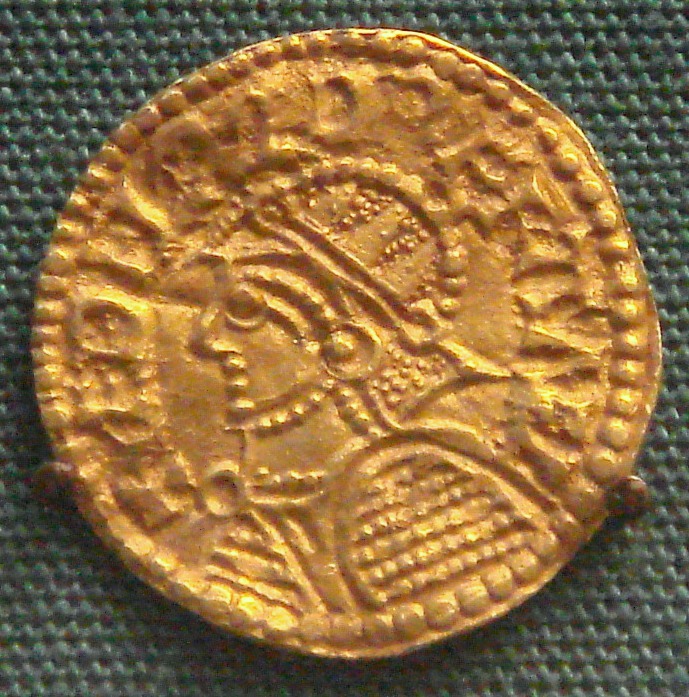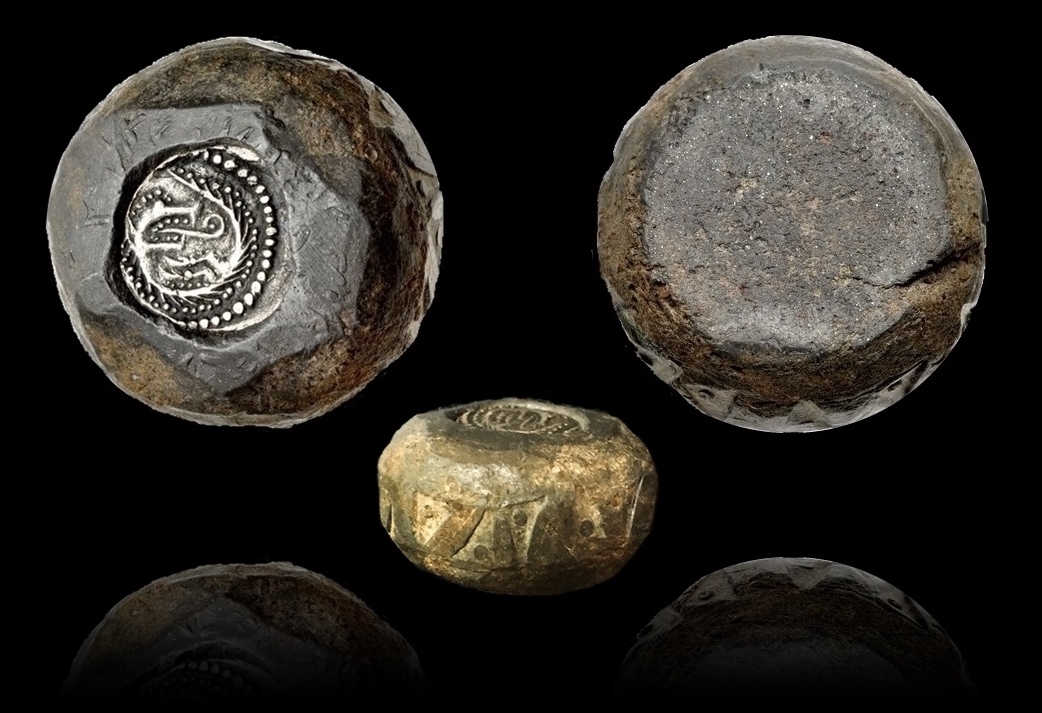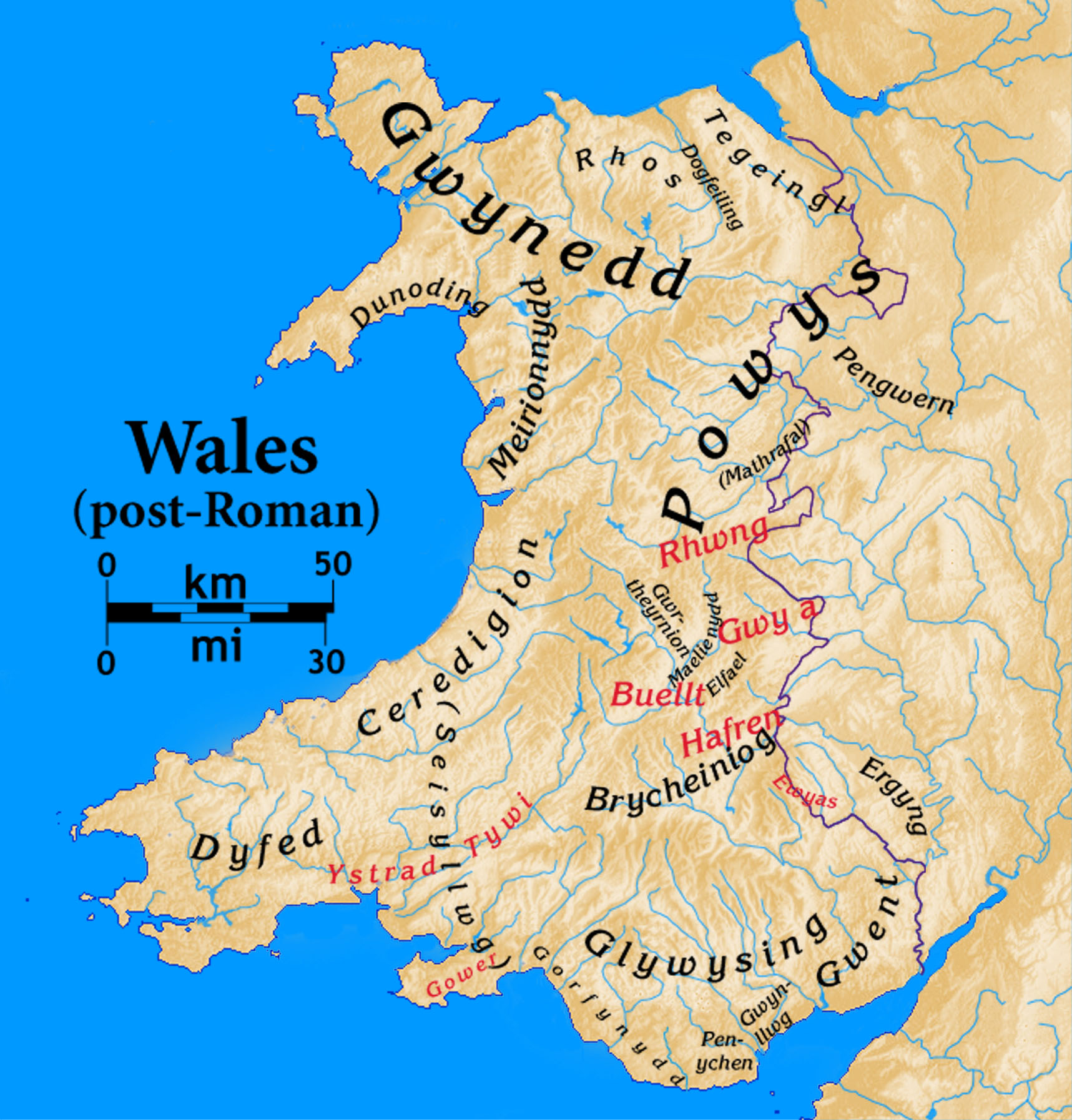|
Coenwulf Of Mercia
Coenwulf (; also spelled Cenwulf, Kenulf, or Kenwulph; ) was the king of Mercia from December 796 until his death in 821. He was a descendant of King Pybba, who ruled Mercia in the early 7th century. He succeeded Ecgfrith, the son of Offa; Ecgfrith only reigned for five months, and Coenwulf ascended the throne in the same year that Offa died. In the early years of Coenwulf's reign he had to deal with a revolt in Kent, which had been under Offa's control. Eadberht Præn returned from exile in Francia to claim the Kentish throne, and Coenwulf was forced to wait for papal support before he could intervene. When Pope Leo III agreed to anathematise Eadberht, Coenwulf invaded and retook the kingdom; Eadberht was taken prisoner, was blinded, and had his hands cut off. Coenwulf also appears to have lost control of the kingdom of East Anglia during the early part of his reign, as an independent coinage appears under King Eadwald. Coenwulf's coinage reappears in 805, indicating that the ... [...More Info...] [...Related Items...] OR: [Wikipedia] [Google] [Baidu] |
Mancus
Mancus (sometimes spelt ''mancosus'' or similar, from Arabic ''manqūsh'' منقوش) was a term used in early medieval Europe to denote either a gold coin, a weight of gold of 4.25g (equivalent to the Islamic gold dinar, and thus lighter than the Byzantine solidus), or a unit of account of thirty silver pence. This made it worth about a month's wages for a skilled worker, such as a craftsman or a soldier. Distinguishing between these uses can be extremely difficult: the will of the Anglo-Saxon king Eadred, who died in 955, illustrates the problem well with its request that "two thousand mancuses of gold be taken and minted into mancuses" (''nime man twentig hund mancusa goldes and gemynetige to mancusan''). Term The origin of the word ''mancus'' has long been a cause of debate. It is now generally accepted that ''mancus'' derives from the Arabic word منقوش ' (from the triliteral verbal root ''n-q-sh'' 'to sculpt, engrave, inscribe'), which was often employed in a numi ... [...More Info...] [...Related Items...] OR: [Wikipedia] [Google] [Baidu] |
Pope Leo III
Pope Leo III (; died 12 June 816) was bishop of Rome and ruler of the Papal States from 26 December 795 to his death on 12 June 816. Protected by Charlemagne from the supporters of his predecessor, Adrian I, Leo subsequently strengthened Charlemagne's position by crowning him emperor. The coronation was not approved by most people in Constantinople, although the Byzantines, occupied with their own defenses, were in no position to offer much opposition to it. Rise According to the ''Liber Pontificalis'', Leo was "of the Roman nation, the son of Atzuppius" (''natione romanus ex patre Atzuppio''). The '' Chronicon Anianense'' says, more specifically, that he was "born in Rome to Asupius and Elizabeth" (''natus rome ex patre asupio matre helisabeth''). Usually considered to be of Greek origin, his father's name may suggest an Arab background.T. F. X. Noble (1985), The Declining Knowledge of Greek in Eighth- and Ninth-Century Papal Rome", ''Byzantinische Zeitschrift'', 78(1): 59. An ... [...More Info...] [...Related Items...] OR: [Wikipedia] [Google] [Baidu] |
Egbert Of Wessex
Ecgberht (died 839), also spelled Egbert, Ecgbert, Ecgbriht, Ecgbeorht, and Ecbert, was King of Wessex from 802 until his death in 839. His father was King Ealhmund of Kent. In the 780s, Ecgberht was forced into exile to Charlemagne's court in the Frankish Empire by the kings Offa of Mercia and Beorhtric of Wessex, but on Beorhtric's death in 802, Ecgberht returned and took the throne. Little is known of the first 20 years of Ecgberht's reign, but it is thought that he was able to maintain the independence of Wessex against the kingdom of Mercia, which at that time dominated the other southern English kingdoms. In 825, Ecgberht defeated Beornwulf of Mercia, ended Mercian Supremacy at the Battle of Ellandun, and proceeded to take control of the Mercian dependencies in southeastern England. In 829, he defeated Wiglaf of Mercia and drove him out of his kingdom, temporarily ruling Mercia directly. Later that year Ecgberht received the submission of the Northumbrian king at Dore, S ... [...More Info...] [...Related Items...] OR: [Wikipedia] [Google] [Baidu] |
Wessex
The Kingdom of the West Saxons, also known as the Kingdom of Wessex, was an Anglo-Saxon Heptarchy, kingdom in the south of Great Britain, from around 519 until Alfred the Great declared himself as King of the Anglo-Saxons in 886. The Anglo-Saxons believed that Wessex was founded by Cerdic and Cynric of the Gewisse, though this is considered by some to be a legend. The two main sources for the history of Wessex are the West Saxon Genealogical Regnal List and the ''Anglo-Saxon Chronicle'' (the latter of which drew on and adapted an early version of the List), which sometimes conflict. Wessex became a Christianity, Christian kingdom after Cenwalh () was baptised and was expanded under his rule. Cædwalla later conquered Kingdom of Sussex, Sussex, Kingdom of Kent, Kent and the Isle of Wight. His successor, Ine of Wessex, Ine (), issued one of the oldest surviving English law codes and established a second West Saxon bishopric. The throne subsequently passed to a series of kings wit ... [...More Info...] [...Related Items...] OR: [Wikipedia] [Google] [Baidu] |
Norman Conquest
The Norman Conquest (or the Conquest) was the 11th-century invasion and occupation of England by an army made up of thousands of Normans, Norman, French people, French, Flemish people, Flemish, and Bretons, Breton troops, all led by the Duke of Normandy, later styled William the Conqueror. William's claim to the English throne derived from his familial relationship with the childless Anglo-Saxon king Edward the Confessor, who may have encouraged William's hopes for the throne. Edward died in January 1066 and was succeeded by his brother-in-law Harold Godwinson. The Norwegian king Harald Hardrada invaded northern England in September 1066 and was victorious at the Battle of Fulford on 20 September, but Godwinson's army defeated and killed Hardrada at the Battle of Stamford Bridge on 25 September. Three days later on 28 September, William's invasion force of thousands of men and hundreds of ships landed at Pevensey in Sussex in southern England. Harold marched south to oppose ... [...More Info...] [...Related Items...] OR: [Wikipedia] [Google] [Baidu] |
Cwoenthryth
Cwenthryth (fl. 811-c.827) was a daughter of King Coenwul of Mercia. In 811 she witnessed a charter of her father as ''filia regis'' (king's daughter). She was abbess of Winchcombe Minster, Reculver and Minster in Thanet, which she inherited from her father. She also inherited a dispute with Wulfred, Archbishop of Canterbury, over control of Reculver and Minster in Thanet. Coenwulf died in 821 and in 825 Wulfred launched a lawsuit to force her to submit to him and by 827 he had gained control over the properties. She is not recorded after that year. According to a late and unreliable source, Cwenthryth murdered her brother, Cynehelm, who was later described as Saint Kenelm Saint Kenelm (or Cynehelm) was an Anglo-Saxon saint, venerated throughout medieval England, and mentioned in the ''Canterbury Tales'' ( The Nun's Priest's Tale, lines 290–301, in which the cockerel Chauntecleer tries to demonstrate the reality ... in a late eleventh-century hagiography and venerated in ... [...More Info...] [...Related Items...] OR: [Wikipedia] [Google] [Baidu] |
Wulfred
Wulfred (died 24 March 832) was an Anglo-Saxon Archbishop of Canterbury in medieval England. Nothing is known of his life prior to 803, when he attended a church council, but he was probably a nobleman from Middlesex. He was elected archbishop in 805 and spent his time in office reforming the clergy of his cathedral. He also quarrelled with two consecutive Mercian kings – Coenwulf and Ceolwulf – over whether laymen or clergy should control monasteries. At one point, Wulfred travelled to Rome to consult with the papacy and was deposed from office for a number of years over the issue. After Coenwulf's death, relations were somewhat better with the new king Ceolwulf, but improved much more after Ceolwulf's subsequent deposition. The dispute about control of the monasteries was not fully settled until 838, after Wulfred's death. Wulfred was the first archbishop to place his portrait on the coinage he struck. Sources and early life The main sources for Wulfred's lif ... [...More Info...] [...Related Items...] OR: [Wikipedia] [Google] [Baidu] |
Archbishop Of Canterbury
The archbishop of Canterbury is the senior bishop and a principal leader of the Church of England, the Primus inter pares, ceremonial head of the worldwide Anglican Communion and the bishop of the diocese of Canterbury. The first archbishop was Augustine of Canterbury, the "Apostle to the English", who was sent to England by Pope Gregory the Great and arrived in 597. The position is currently vacant following the resignation of Justin Welby, the List of Archbishops of Canterbury, 105th archbishop, effective 7 January 2025.Orders in Council, 18 December 2024, page 42 During the vacancy the official functions of the office have been delegated primarily to the archbishop of York, Stephen Cottrell, with some also undertaken by the bishop of London, Sarah Mullally, and the bishop of Dover, Rose Hudson-Wilkin. From Augustine until William Warham, the archbishops of Canterbury were in full communion with the Catholic Church and usually received the pallium from the pope. During the ... [...More Info...] [...Related Items...] OR: [Wikipedia] [Google] [Baidu] |
Eardwulf Of Northumbria
Eardwulf (fl. 790 – 830) was king of Northumbria from 796 to 806, when he was deposed and went into exile. He may have had a second reign from 808 until perhaps 811 or 830. Northumbria in the last years of the eighth century was the scene of dynastic strife between several noble families: in 790, king Æthelred I attempted to have Eardwulf assassinated. Eardwulf's survival may have been viewed as a sign of divine favour. A group of nobles conspired to assassinate Æthelred in April 796 and he was succeeded by Osbald: Osbald's reign lasted only twenty-seven days before he was deposed and Eardwulf became king on 14 May 796. Little is recorded of Eardwulf's family, though his father, also named Eardwulf, is known to have been a nobleman. Eardwulf was married by the time he became king, though his wife's name is not recorded. It is possible he later wed an illegitimate daughter of Charlemagne. In 798, early in his reign, Eardwulf fought a battle at Billington Moor against a ... [...More Info...] [...Related Items...] OR: [Wikipedia] [Google] [Baidu] |
Kingdom Of Northumbria
Northumbria () was an early medieval Heptarchy, kingdom in what is now Northern England and Scottish Lowlands, South Scotland. The name derives from the Old English meaning "the people or province north of the Humber", as opposed to the Southumbria, people south of the Humber, Humber Estuary. What was to become Northumbria started as two kingdoms, Deira in the south and Bernicia in the north. Conflict in the first half of the seventh century ended with the murder of the last king of Deira in 651, and Northumbria was thereafter unified under Bernician kings. At its height, the kingdom extended from the Humber, Peak District and the River Mersey on the south to the Firth of Forth on the north. Northumbria ceased to be an independent kingdom in the mid-tenth century when Deira was conquered by the Danelaw, Danes and formed into the Kingdom of York. The rump Earl of Northumbria, Earldom of Bamburgh maintained control of Bernicia for a period of time; however, the area north of R ... [...More Info...] [...Related Items...] OR: [Wikipedia] [Google] [Baidu] |
Wales In The Early Middle Ages
Wales in the early Middle Ages covers the time between the Roman departure from Wales c. 383 until the middle of the 11th century. In that time there was a gradual consolidation of power into increasingly hierarchical kingdoms. The end of the early Middle Ages was the time that the Welsh language transitioned from the Primitive Welsh spoken throughout the era into Old Welsh, and the time when the modern England–Wales border would take its near-final form, a line broadly followed by Offa's Dyke, a late eighth-century earthworks (archaeology), earthwork. Successful unification into something recognisable as a Welsh state would come in the next era under the descendants of Merfyn Frych. Wales was Rural area, rural throughout the era, characterised by small settlements called ''trefi''. The local landscape was controlled by a local aristocracy and ruled by a warrior aristocrat. Control was exerted over a piece of land and, by extension, over the people who lived on that land. Many ... [...More Info...] [...Related Items...] OR: [Wikipedia] [Google] [Baidu] |
Eadwald Of East Anglia
Eadwald of East Anglia was an obscure king of the small Anglo-Saxon kingdom of East Anglia (Old English: Ēast Engla Rīce) from around the year 796 to some point between 798 and 805. He lived at a time when East Anglia was eclipsed by its more powerful neighbour, Mercia. After his deposition, submission, or death, Mercian control was restored under Coenwulf and the East Anglians lost their independence for a quarter of a century. Knowledge of Eadwald's short reign comes almost solely from the few surviving coins that were minted under his name. No details of his life or reign are known. Background The kingdom of East Anglia () was a small independent Anglo-Saxon kingdom that comprised what are now the English counties of Norfolk and Suffolk. It perhaps also included the eastern part of the Fens in Cambridgeshire, a region that was disputed between the East Angles and their neighbours, the Mercians. Created in the wake of the Anglo-Saxon settlement of Britain, the kingdom was r ... [...More Info...] [...Related Items...] OR: [Wikipedia] [Google] [Baidu] |





